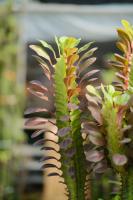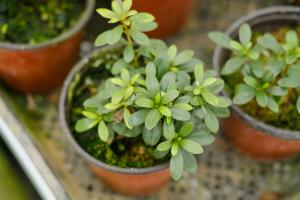Are Manuka and Tea Tree the Same Plant?
Manuka and tea tree plants are two popular and versatile plants that are known for their many health benefits. Although they are often marketed interchangeably, the two plants are not the same. In this article, we will explore the differences between manuka and tea tree plants and how they can benefit your health.
Manuka Plant
The Manuka plant (Leptospermum scoparium) is a shrub that is native to New Zealand and Southeast Australia. It is a significant source of honey, which is highly valued for its antibacterial properties. The Manuka plant is also used in traditional medicine for its antifungal and anti-inflammatory properties.
Manuka plant extracts have been found to be effective in treating various skin conditions, including acne, eczema, and psoriasis. They are also used in mouthwashes and toothpaste to treat gingivitis and bad breath. In addition, Manuka honey has been studied for its potential antitumor and anti-inflammatory properties.
Tea Tree Plant
Tea tree (Melaleuca alternifolia) is a tree native to New South Wales, Australia. It is known for its essential oil, which is derived from the leaves of the plant. Tea tree oil is widely used in skincare products, especially in the treatment of acne and other skin conditions. It has also been used to treat various respiratory problems, such as bronchitis, sinusitis, and asthma.
Tea tree oil has antifungal and antibacterial properties, making it useful in the treatment of fungal infections, such as athlete's foot and ringworm. It is also effective against lice, and it is sometimes used in shampoos and other hair care products to treat dandruff and prevent head lice infestations.
Differences Between Manuka and Tea Tree Plants
Although the Manuka and tea tree plants are similar in many ways, they differ in some significant aspects. First, they belong to different botanical families. Manuka belongs to the Myrtaceae family, while tea tree belongs to the Melaleuca family.
Second, Manuka and tea tree plants have different chemical profiles, which accounts for their different uses. Manuka essential oil is rich in triketones, which are responsible for its antibacterial properties. Tea tree essential oil, on the other hand, is rich in terpinen-4-ol, which gives it its antifungal properties.
Finally, Manuka and tea tree plants differ in their geographical distribution. While Manuka is native to New Zealand and Southeast Australia, tea tree is native to New South Wales, Australia.
Conclusion
Overall, while Manuka and tea tree plants share some similarities in their uses, they are not the same plant. Both plants have unique chemical properties and applications. The next time you are shopping for natural remedies or skincare products, be sure to read the labels carefully to ensure that you are getting the plant that you need for your specific ailment.

 how many times do yo...
how many times do yo... how many planted tre...
how many planted tre... how many pine trees ...
how many pine trees ... how many pecan trees...
how many pecan trees... how many plants comp...
how many plants comp... how many plants can ...
how many plants can ... how many plants and ...
how many plants and ... how many pepper plan...
how many pepper plan...






























